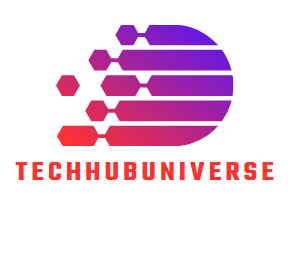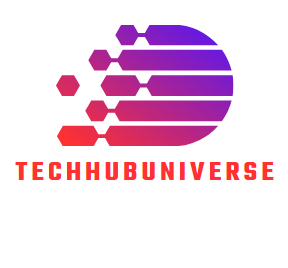Programming is the backbone of data science, enabling professionals to analyze data, build models, and derive meaningful insights that drive decision-making. As data science continues to evolve, programming skills remain critical for success in the field. In 2024, data scientists are expected to possess a robust programming foundation to handle increasingly complex data sets and leverage advanced tools. For those considering a data science course to enter or advance in this field, understanding the importance of programming is essential. Let’s explore why programming skills are indispensable for data scientists in 2024 and beyond.
Why Programming Matters in Data Science
Programming is a truly fundamental skill for data scientists because it allows them to manipulate data, develop algorithms, and automate processes. Data scientists use various programming languages to clean and prepare data, build statistical models, and deploy machine learning algorithms. Without programming skills, data scientists would struggle to perform these essential tasks. In today’s data-driven world, where organizations rely on data insights to make informed decisions, data scientists need to be proficient in programming to meet industry demands.
Popular Programming Languages for Data Science
Several programming languages are popular in data science, each with its strengths and use cases. Python and R are the two highly commonly used languages, known for their versatility and extensive libraries. Python is particularly valued for its overall simplicity and scalability, making it suitable for both beginners as well as experienced data scientists. R, on the other hand, is specifically favored for statistical analysis and visualization. SQL is another essential language, as it enables data scientists to query databases and extract valuable information. For anyone taking a data science course in Pune, gaining proficiency in these languages is a great starting point for a successful career.
Python: The Go-To Language for Data Science
Python’s popularity in data science has soared due to its user-friendly syntax and extensive libraries, such as Pandas, NumPy, and SciPy. These libraries make data manipulation, statistical analysis, and scientific computing more accessible. Additionally, Python’s machine learning libraries, such as TensorFlow, Keras, and scikit-learn, allow data scientists to build and train models efficiently. As a versatile and scalable language, Python is well-suited for both data analysis and production environments, making it a must-have skill for data scientists in 2024.
R for Advanced Statistical Analysis
While Python is the go-to language for many data scientists, R remains highly valuable for those focused on statistical analysis and data visualization. R has specialized packages, like ggplot2 and dplyr, which are ideal for creating complex visualizations and conducting in-depth statistical analysis. For data scientists working in academia or research, R offers robust tools for handling statistical data, making it a preferred choice. Data scientists who take a data science course will often learn both Python and R to maximize their versatility in the field.
SQL: The Essential Language for Data Querying
SQL (Structured Query Language) is indispensable for data scientists, as it allows them to interact with relational databases. Data scientists use SQL to retrieve, manipulate, and analyze data stored in various databases, making it easier to access and prepare data for analysis. SQL is particularly valuable in data warehousing and big data environments, where large volumes of structured data are stored. Proficiency in SQL is a core skill for data scientists, enabling them to efficiently work with data across various platforms.
The Rise of Julia and Other Emerging Languages
In recent years, Julia has gained attention as an emerging programming language for data science. Known for its speed and performance, Julia is well-suited for high-performance computing and complex mathematical computations. Although not as widely adopted as Python or R, Julia is becoming popular among data scientists who work with large data sets or require fast processing speeds. Other languages, such as Scala and Java, are also used in specific data science applications, particularly in big data and data engineering roles. For those interested in exploring alternative languages, a data science course in Pune may offer opportunities to learn these emerging tools.
Programming in Data Preparation and Cleaning
Data preparation and cleaning are essential steps in data science, as they ensure data quality and accuracy. Data scientists use programming languages to handle missing values, remove duplicates, and correct inconsistencies in data sets. Libraries like Pandas in Python and data.table in R provide powerful tools for data wrangling, making it easier to transform raw data into a usable format. Since data preparation can be time-consuming, proficiency in programming helps data scientists automate these tasks and save valuable time.
Building and Implementing Machine Learning Models
Machine learning is at the heart of data science, and programming skills are crucial for building and implementing machine learning models. Data scientists use programming languages to develop algorithms, train models, and evaluate their performance. Python’s scikit-learn and TensorFlow libraries offer a range of machine learning tools, from linear regression to deep learning. By writing code, data scientists can customize models to fit specific data sets, optimize algorithms, and deploy models in production environments.
Automation and Scripting for Efficiency
Data scientists often need to perform repetitive tasks like data extraction, transformation, and loading (ETL). Programming allows data scientists to automate these tasks through scripting, reducing manual effort and increasing efficiency. For example, Python scripts can automate data scraping from websites or schedule regular data updates in databases. By automating routine tasks, data scientists can focus on more strategic activities like analysis and model building, ultimately increasing their productivity.
Data Science in Big Data and Cloud Environments
As the volume of data grows, data scientists are increasingly working with big data and cloud-based environments. Programming skills are essential for managing and analyzing large data sets on platforms like Hadoop, Spark, and cloud services such as AWS, Azure, and Google Cloud. Data scientists use programming languages to build data pipelines, process big data, and scale analytics in cloud environments. For those considering a data science course, learning programming skills relevant to big data and cloud computing will be valuable for staying competitive in the job market.
Collaboration and Open Source Contributions
The data science community is known for its collaborative nature, with many tools and libraries available as open-source projects. Data scientists often contribute to open-source projects, sharing code, libraries, and models that benefit the entire community. Programming skills enable data scientists to collaborate effectively, contribute to projects on platforms like GitHub, and stay updated on the various latest advancements in the field. By engaging with the open-source community, data scientists can expand their knowledge, develop new skills, and stay at the forefront of industry trends.
Continuous Learning and Adaptation
The field of data science is constantly evolving, with new tools, techniques, and programming languages emerging regularly. Data scientists must be adaptable and willing to learn continuously to stay current with industry trends. Whether it’s mastering a new language like Julia or exploring the latest machine learning algorithms, programming skills provide a truly robust foundation for continuous learning. A data science course in Pune can offer structured learning opportunities that help professionals stay updated and prepared for the future of data science.
Conclusion
Programming is an indispensable skill for data scientists, enabling them to manipulate data, build models, and generate insights that drive decision-making. In 2024, data scientists must be proficient in programming languages like Python, R, and SQL to remain competitive and meet industry demands. For those considering a career in data science, a data science course can provide the foundational skills needed to succeed in this fast-paced field. As data science continues to evolve, programming will remain a crucial component, empowering data scientists to tackle complex challenges, innovate, and make a meaningful impact across industries.
Business Name: ExcelR - Data Science, Data Analyst Course Training
Address: 1st Floor, East Court Phoenix Market City, F-02, Clover Park, Viman Nagar, Pune, Maharashtra 411014
Phone Number: 096997 53213
Email Id: enquiry@excelr.com



Post a Comment